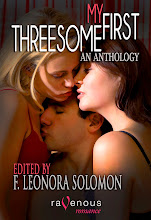
From the Sunday New York Times Editorial Section the following ("A Return To American Justice"): "Experience shows that federal courts are capable of handling high-profile terrorism trials without comprising legitimate secrets..."
It's obvious the word is intended to be "compromising". Typo? Editorial oversight? Or a clear case of WORD ABUSE!
Peak. Peek. Pique. Anyone. Any one. Everyone. Every one. A lot. Alot. All right. Alright. Rein. Rain. Reign. Threw. Through. Weather. Whether. Except. Accept. Led. Lead. Peace. Piece. Council. Counsel. Dual. Duel. Principle. Principal. Capital. Capitol. Cite. Site. Sight. Raise. Raze.
The list goes on and on. I must ask: What's up with the prevalence of writing errors concerning word use? It is not just about spelling, really (all right, it is in some cases like "a lot" and "all right" - that's more of a usage problem, too). It's about not knowing the difference between one word and another, when they mean utterly different things. I have to say that I'm flummoxed as to why a writer wouldn't be absolutely zealous about mastering vocabulary which is, essentially, their lone tool for storytelling and communication. I'm not even talking about the really weird words, the utterly unseen (scene/seen) examples that crop up only in academic texts or the classics (adds or adze - the latter being an ax-like tool, or all or awl - a pointed scriber); though airy and aerie do come up, now that I mention it!
I have certainly found myself typing the wrong word when in the throes of a creative fervor because my fingers type faster than my eyes read. And since spell check won't catch them and grammar check is a pain in my tush, if I'm not careful that "throes" might come out "throws". Imagine, if you will, an editor perusing your steamy love scene which reads: "while in the throws of orgasm she moaned" - What? You're not going for laughs there? (you're/your; its/it's - these being a couple of the grammatical faux pas that far too frequently rear their ugly heads).
Correct: "If everyone in the hot dog eating contest ate every one of their hot dogs, how do they know who won?"
Not so much: "If everyone in the hot dog eating contest ate everyone of their hot dogs, how do they know whom was the winner?"
Homonyms - words that sound alike, but are spelled differently and have different meanings. (Or almost sound alike in some cases.) Advice. Advise. Censure. Censor. Chose. Choose. Assure. Ensure. Insure. Clothes. Cloths. Emminent. Imminent. Alter. Altar. Band. Banned. Who's. Whose. Heel. Heal. And one of my favorites: Want and wont. (That crops up a lot in historical romances.)
I'm coming across these errors more and more as I read unpublished authors' work on blogs, posted excerpts (not excepts, as I've seen...), critique groups and in contests (and on some sad occasions, published work - what's up with those copy editors? In a published novel in the first paragraph I came across this: "She waved her hand imperviously at the waiter." I called the publisher - St. Martin's for full-disclosure - and reported the typo. My complaint was met with a fairly vague, "Oh" from the editorial assistant to whom I spoke). I wonder if these authors are making just typing errors (obviously understandable) that they subsequently don't catch (less understandable) - and which their CPs don't catch either - or if there is actually a growing population of people whose vocabulary skills are simply that piss poor? Is it because they don't read enough? I find that hard to believe, frankly, because the authors of romance that I know read voraciously. Don't focus? Perhaps it is simple carelessness. I hate to think it is a purely blatant lack of concern with the quality of work product.
Regardless, I mark up entries in contests, and I critique people's excerpts and constantly point out these errors. And if I, as a completely disinterested party, catch them, you can be sure editors and agents are catching them (with the possible exception of the above-referenced editorial assistant). And I would hazard a guess that there's nothing more apt to turn off an editor or agent than a submission filled with:
"I want everyone of you to line up for inspection."
or "As is my want, I tumbled the chit without a second thought."
or, "Hand me the reigns, Jeeves and I'll run the fox to ground."
"Are you alright?" (OK, this word, and alot are used so frequently - albeit incorrectly - that they are becoming accepted spellings and usages. I'm not happy about this. I don't see the value with rewarding sloppiness, vocabularily speaking, by allowing the words to become acceptable just to save everyone the trouble of figuring out the correct choice of spelling or usage. Let's raise the standards, not allow them to sink to the lowest common denominator, OK? (Or is that: Okay?)
I'm not going to go into the various other issues: Who, whom, therefore, therefor, flammable, inflammable, and heaven save me from a comma debate.
But tangentially, there is also that category unto itself - malapropisms.
The legacy of Richard Sheridan's Mrs. Malaprop, these are the wacky misrenderings of classic sayings that can stop a reader in her tracks when you spot the incongruous beast in the midst of a romance. "It's a doggy doggy world" was a favorite my Mother always remembered, quoted from a young neighbor many, many years ago. Dan Quayle, noted malaprop: "Republicans understand the importance of bondage between mother and child." And that other famous gent, Archie Bunker: "Thou shalt not bear falsies against thy neighbor." From The Sopranos: "There's no stigmata connected with going to a shrink." And while his words were not legitimate malaprops, there's the Master of Mangle himself, Yogi Berra - "It's deja vous all over again!" and "Nobody goes there anymore, it's too crowded."
I've heard numerous malapropisms over the years. "He's really up a creek with a paddle." (which reminds me - creak and creek). "I don't know what I'd do if I were under your shoes!", "Boy, he's a real mover and a shaker-he doesn't let any hair grow under his feet." But I must bestow the ignominious first prize to: "Battle down the hatchets!"
A writer's world is a world of words. They will make you able to speak sublimely to your readers, or, if you aren't careful, instead have those poor souls stumbling awkwardly through your prose. I beg of you - check before you print! Consult a dictionary or thesaurus before you commit those precious and INCORRECT words to paper. Even go so far as to read the dictionary and study those words like the vital tool they are. Give yourself the absolute best chance to shine. Don't expect editors will find and fix your mistakes. Aim for perfection before you send them out to that editor or agent, who'll take one look and roll their eyes (notice I did not say 'role') and toss your submission into the "reject" pile.
Because the shock might just make you prostate ... WHOOPS, I meant, PROSTRATE with grief.







3 comments:
Thank you, Lise, for exploring one of my pet peeves. We all make typos (I know I do) but one should take the extra step to make sure one is as accurate and correct as possible, not only in work that is submitted to a publisher, but in our everyday correspondence such as email (or is that e-mail?), blogging, etc. And i wont even tlk abt y i h8 txting!
I was semi-horrified to discover that my editor caught a 'then/than' blunder in my MS, as well as an 'everyday/every day' mishap. Yes, I do know the difference, but it is so hard to be perfect all the time!
By the way, I noticed that Yogi's spelling, as well as his logic, was a wee (we?) bit off in the "déjà vu" (literally "already seen") quote. Though pronounced the same way, vu is the past participle of the French verb voir (to see) and vous is the polite form of you.) Or was that a bit of little extra irony on your part, Lise? :)
Great post!
Lis
Humbled again by the eagle eye of Lis Eng - and will confess that the "deja vu" typo was just that - I'll claim that my outrage blinded me to the error but it's just another example that shows no matter how well you proof and proof you still make mistakes. Imagine if you didn't proof at all!
Thanks for reading and being a fellow champion of word perfection!
And thanks for being my first follower!
Hey, Lise, you're talking about one of my pet peeves. I can scarcely read a book without finding typos (sometimes several) and mis-used words. Where are the editors and copy editors? I really wonder. Have they all been laid off, or did they never learn these words correctly?
Post a Comment